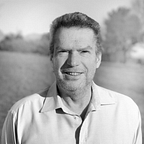Practice doesn’t make perfect
I was lied to as a kid — my parents, teachers, sports coaches, etc. — not intentionally, of course, as I guess they were only trying to encourage my development, but they lied. They told me, even exhorted me that practice makes perfect: “The sky is the limit. You can achieve anything that you want to achieve. It’s all about practice — the harder you practise, the better you will get”. Well, I tried the choir with aspirations of being a second Pavarotti, Domingo or Carreras, but got kicked out — “you will need a voice-box transplant if you want to make it!” I tried golf, even picturing myself on the professional circuit, but spent too much time in the vegetation alongside the fairways. I wasn’t an over-achiever academically, although my marks were “satisfactory”, as one of my teachers noted: “Jonathan continues to produce good work”. “Good” — what does that mean? And “good” seems to be very far removed from “perfect”. Then, I heard from one of my coaches that “perfect practice makes perfect”, indicating that I needed to be practising the right things to get to a place of perfection. I read a lot, asked a lot of questions, received instruction, watched others doing it, watched video footage of the greats, tried to mimic them and got a little better at whatever I was practising, but not great — a whole lot less than perfect anyhow. I think I must have made it to the high school’s honours board as their biggest under-achiever — I was “good”, but nowhere near “perfect”.
It was only later in life that I realised I had to apply laser-focused effort to my giftedness to get close to the results that I wanted. I could put in hours and hours of practice with the piano (even Malcom Gladwell’s 10 000 Hour Rule — in his book: Outliers), but that would not necessarily make me a concert pianist. I might be a good pianist after all that work, but not reach greatness. There seem to be so many factors, other than practice, that make for perfection — genetic disposition, skeletal structure and dimension of bones, intelligence, attitude, opportunity, desire, context, exposure, etc. Oh yes, of course practice helps you to get better and better and moulds the right habits if feedback from mentors is spot-on (to put it another way, practice seems to make permanent), but practice, although necessary, is not a cure-all.
So, if everyone is gifted in one way or another (and we all are), it seems to make sense that one should focus one’s efforts on enhancing and perfecting one’s respective gift/s. By “gift” I mean “a special aptitude for” or “an enhanced talent” or “something that you are really good at doing” — these gifts are not only located in the fields of sport, science, music or technology, but also could include public-speaking, basket-weaving, caring for others, entrepreneurship, etc. As you grow your gift and use it appropriately, doors start opening for you. Focusing on your giftedness does not mean that you neglect other areas where you can improve — with some practice, of course, improvements can be made. I would not, however, focus all my energy on improving my weak areas — I would rather focus the majority of my energy and time on “perfecting” my giftedness.
Basket-weaving, for example, may be a skill that you have. If you would like to further that skill, practise it, become more creative with your art, use different materials and colours and become great at it. Then consider how you can involve others, teach others, start a company and employ others, start a basket-weaving school as part of the company and employ teachers, collaborate with tourism and other marketing bodies to give the products international exposure, make the weaving centre a tourist destination, etc. You do not have to function in all the necessary roles — employ an accountant to handle the finances and a qualified teacher to handle the school and collaborate for the rest — you focus on creative basket-weaving and perfecting it and let others handle the rest.
Even though practice helps to develop the right habits, practice doesn’t make perfect. Practice is one of a number of inputs necessary to take your giftedness to new levels of greatness — consider also the following: self-motivation, receiving feedback and applying it, creation of opportunities, attitude, resources, level of confidence and passion.
Originally published at https://www.stretchforgrowth.com on April 16, 2018.
